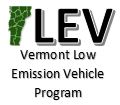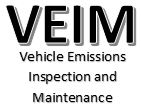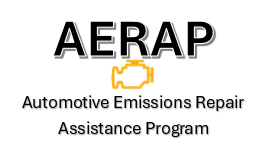Mobile sources, primarily motor vehicles, are a significant source of air pollutants in Vermont including air toxics, the ozone precursors (volatile organic compounds and nitrogen oxides), and carbon monoxide. Motor vehicles also represent the largest source of greenhouse gas emissions in Vermont. In order to reduce the impact of mobile source emissions on air quality and human health, the Mobile Sources Section implements and manages a number of programs and strategies for controlling on-road and non-road mobile sources of air pollution.
Primary Mobile Sources Section Programs More Mobile Sources Information
What Are Mobile Sources & Why Do They Matter?
Mobile sources include vehicles, engines and equipment, that can be categorized as either on-road mobile sources (e.g. trucks, buses, passenger cars, and motorcycles) or non-road mobile sources (e.g. locomotives, marine vessels, construction equipment, lawn, garden and snow equipment, personal recreation equipment, etc.). The transportation sector accounts for the highest share of both greenhouse gas emissions and energy use in Vermont.
Mobile source emissions include:
- Greenhouse gases, which contribute to climate change;
- Volatile organic compounds (VOCs) and nitrogen oxides (NOx), which combine to form ground level ozone that triggers asthma attacks, damages lung tissue, and damages forests and crops;
- Fine particulate matter (PM), which causes respiratory and cardiovascular damage, and leads to haze that limits visibility;
- Toxic and carcinogenic compounds such as benzene, aldehydes and butadiene; and
- Carbon monoxide (CO), which interferes with the delivery of oxygen to the body’s organs and tissues.
Toxic and carcinogenic air pollutants are of concern because they are known or suspected of causing cancer in humans, and pose a threat even at very low levels. Diseases aggravated by air pollution include chronic sinusitis, bronchitis, asthma, and allergies. Studies show that air pollution poses significant risk of pulmonary problems in developing fetuses, young children, and older individuals, and damages the immune system in healthy adults.
Primary Mobile Sources Section Programs
 |
Vermont’s Low Emission Vehicle (LEV) Program, including its Zero Emission Vehicle requirements, is a key strategy in climate change mitigation, and is crucial to our efforts to remain in attainment of the National Ambient Air Quality Standards. |
 |
The Vehicle Emissions Inspection and Maintenance Program helps to ensure that Vermont vehicles remain clean throughout their useful lives by requiring annual testing of vehicle emissions control systems and repairs if needed. |
 |
The Automotive Technician Training Program provides information and training opportunities to automotive technicians to help ensure effective and cost-effective maintenance and repair of vehicle emission control systems. |
 |
The Automotive Emissions Repair Assistance Program provides financial assistance to low-income Vermonters for the proper diagnosis and repair of vehicle emission control systems. |
 |
The Diesel Emissions Reduction Program helps to reduce diesel emissions by providing technical support and funding for vehicle and equipment replacement, repowering and retrofitting; installation of idling reduction technologies; and by providing technical and equipment support for in-use testing. |
More Mobile Sources Information
Idle Reduction Efforts – Visit our Be Idle Free page for more information. The American Lung Association has a number of initiatives aimed at eliminating unnecessary idling.
Transportation and Air Quality – The U.S. EPA's Office of Transportation and Air Quality (OTAQ) addresses mobile sources issues on a national level. The OTAQ web page provides information on their mission, variety of programs, and organizational structure.
Reduce Your Environmental Impact – Go! Vermont is a resource for Vermonters who want to reduce the cost and environmental impact of driving and the Vermont Clean Cities Coalition promotes alternative fuels and energy independence and is part of the U.S. Dept. of Energy's Clean Cities Program network. FuelEconomy.gov is a resource for those who want to compare cars according to gas mileage, greenhouse gas emissions and air pollution ratings. Additional buying guides for clean and efficient vehicles are provided by California (DriveClean) and the U.S. EPA (Green Vehicle Guide).
Outreach and Education – ECO-Driving is a clean transportation education and outreach program intended for high school-level science, technology, engineering, and mathematics (STEM) students and driver education students to assist drivers in making informed decisions regarding their transportation options. Educational materials are available free of charge through the Vermont Energy Education Program (VEEP).
Electric Vehicles – Drive Electric Vermont is a statewide coalition of stakeholders from the business, nonprofit, and government sectors dedicated to promoting the spread of electric transportation in Vermont. DEV provides information and hosts events and demo days around the state to educate Vermonters about electric vehicle technology and its benefits to our transportation sector.
